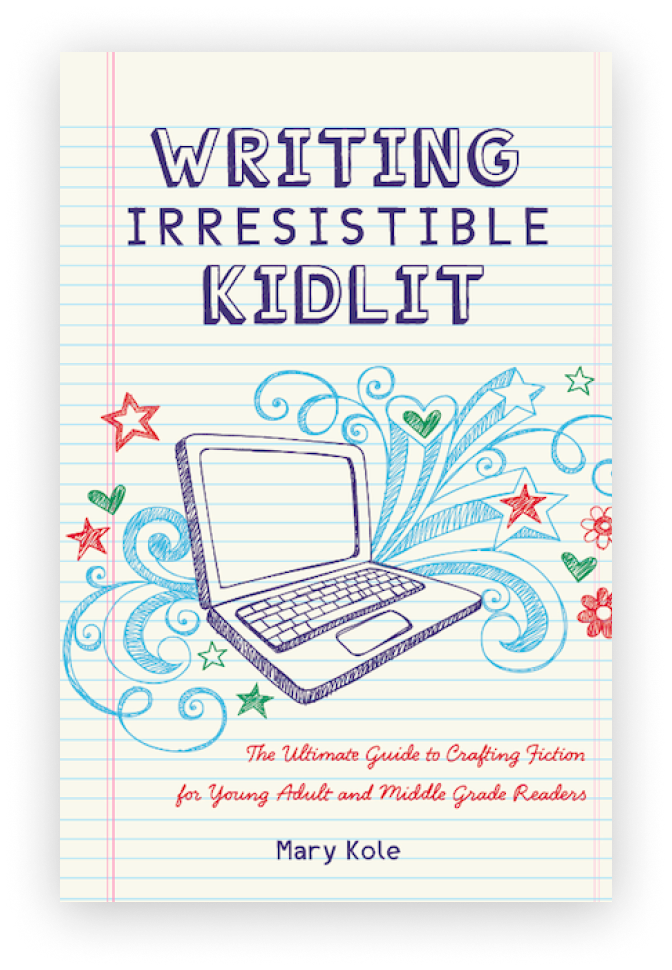Dealing With Writing
Constructive Criticism
By Mary Kole
Mary Kole is a former literary agent, freelance editor, writing teacher, author of Writing Irresistible Kidlit, and IP developer for major publishers, with over a decade in the publishing industry.
Writing is a deeply personal and creative process, and a creative writer often pours their hearts and souls onto the page. As much as writing can be cathartic and therapeutic, it can also be frustrating and challenging, especially when you receive negative writing feedback or constructive criticism. However, writing notes are necessary for growth and improvement, and it's an essential part of the creative writing process that makes writers better at their craft. In this article, I’ll offer tips on how to give and receive constructive criticism, including the tools you need to critique others' work in a critique group or writing workshop, and troubleshoot some common constructive criticism issues.
How to Offer Constructive Criticism
First and foremost, it's important to approach constructive criticism with a positive mindset. When you're giving feedback to someone else, keep in mind that they have spent hours, if not months, on their work. Appreciate the effort, try to understand the creator's intent and identify specific things that they've done well. Only then should you focus on areas that could be improved. Use constructive language, offer actionable suggestions, and be respectful of the creator’s vision and writing style.
When it comes to providing constructive criticism on creative writing, the tools you use will play a significant role in how well your writing feedback is received. Two of the most helpful tools are the "compliment sandwich" and the "three-point critique." The compliment sandwich involves starting with a positive comment, providing constructive feedback, and then finishing with another positive comment, effectively "sandwiching" any negative feedback you may have. The three-point critique involves providing three specific areas of improvement and then offering actionable suggestions for each area.
There are certain storytelling elements of creative writing that are worth commenting on when providing constructive criticism. These include character development, plot structure, pacing, dialogue, writing clarity, and overall writing style. While it's helpful to provide specific feedback on these elements, it's important to keep in mind that everyone has unique approaches, so critiques should be tailored to the writer's individual strengths and weaknesses.
Traditional Publication Benefits and Alternatives
Receiving constructive criticism of your own writing can be a humbling experience, but it's important to remember that notes are not a personal attack. The process of receiving constructive criticism offers an opportunity to learn and grow as a writer. Instead of getting defensive, strive to listen with an open mind and ask clarifying questions if necessary. Consider trying to find the underlying message in the critique and look for actionable suggestions to improve your writing. You may not agree with any of your editor for hire or beta reader’s prescriptive suggestions, but you don’t have to. Find your own solutions to the issues that are being identified. It takes time and experience to develop a thick skin and accept criticism gracefully, but doing so will make you a better writer in the long run.
Finally, it's worth emphasizing that writers need to be quite mature and capable of providing constructive criticism themselves. You shouldn’t be in a writing workshop only to receive. The act of critiquing others' work forces you to evaluate your own skills and hone your understanding of creative writing. It also creates a sense of writing community and can provide a fresh perspective on your own writing. If you're serious about improving your writing craft, giving and receiving constructive criticism is an essential part of the process.
Constructive criticism is a vital aspect of the creative writing process, and it requires a delicate balance of respect, honesty, and positive reinforcement. When done correctly, it provides writers with valuable insights into their work and helps them improve their craft. Remember to approach constructive criticism with a positive mindset, use helpful tools, focus on specific elements of writing, and be willing to receive feedback with grace. By following these tips, you'll become a better writer by helping others improve their craft, and by getting valuable insights in return.

Click here to purchase Writing Irresistible Kidlit, my book on fiction craft for MG and YA novels, out from Writer's Digest Books. This will show you my writing craft philosophy and give you lots of valuable advice, including tips for the novel revision process and self-editing. There are over 35 example novels cited and discussed throughout. It’s a valuable resource for any writer’s toolkit.
Click here to purchase Irresistible Query Letters, my book on query letters, including over forty examples with comprehensive notes on each one. There’s a ton of submission advice, best practices, and insider information in these pages, and you’ll really enjoy seeing what other writers are doing in the slush.
Click here to purchase Writing Interiority: Crafting Irresistible Characters, my book on interiority and character creation. Explore your protagonist’s thoughts, feelings, reactions and interpretations, expectations, and inner struggles to create a rich, immersive experience. This guide will empower you to create characters who live and breathe on the page, fostering an unbreakable bond with your audience.





